Robotics companies have transformed science fiction into everyday reality, producing machines that drive important operations across manufacturing, healthcare, agriculture, logistics, retail, and homes. These firms develop everything from autonomous drones and surgical robots to warehouse systems and collaborative “cobots” that work alongside human workers.
Rapid advancements in the field have created fierce competition among robot manufacturers competing for market leadership. Our in-depth analysis evaluates several robotics companies based on industrial specialization, product diversity, market influence, and technological innovation to help you identify the ideal automation partner for your specific requirements. Here are our top picks for the best robotics companies of 2025.
- ABB: Best for diverse manufacturing applications
- Anduril: Best for defense and national security
- Boston Dynamics: Best for automated inspection
- FANUC: Best for industrial automation
- Piaggio Fast Forward: Best for mobile carrying robots
- Vecna Robotics: Best for material handling automation
- Yaskawa: Best for automating production processes
TABLE OF CONTENTS
7 best robotics companies: Comparison chart
The table below shows how our top seven robotics companies compare in terms of products and technologies, the industries they serve, and their most applicable use cases.
| Robotics company | Best for | Key industries served | Key technologies | Product range |
|---|---|---|---|---|
| ABB | Diverse manufacturing applications | • Manufacturing • Utilities • Construction | • Industrial automation • Motion control • AI-enhanced robotics | • Industrial robots • Collaborative robots • Automation systems • AI-powered robotics |
| Anduril | Defense and national security | • Defense • Security | • AI • Computer vision • Sensor fusion | • Autonomous drones • Surveillance systems • Defense robots • AI-driven security platforms |
| Boston Dynamics | Automated inspection | • Logistics • Warehousing • Public safety • Entertainment | • Dynamic control systems • Computer vision • Advanced sensors | • Spot (quadruped robot) • Atlas (humanoid robot) • Stretch (warehouse automation robot) • Entertainment robots |
| FANUC | Industrial automation | • Manufacturing | • Computer numerical control (CNC) systems • Robotic automation software | • Industrial robots • CNC systems • Robotic welding systems • Robotic assembly |
| Piaggio Fast Forward | Mobile carrying robots | • Last-mile delivery • Personal mobility | • Path planning • Object recognition • Autonomous navigation | • gitaplus (personal cargo robot) • gitamini (smaller gita) • Kilo (heavy-duty cargo robot) |
| Vecna Robotics | Material handling automation | • Warehousing • Logistics | • AI-driven navigation • Autonomous mobile robots (AMRs) | • Automated material handling systems • AMRs • Robotic tuggers |
| Yaskawa | Automating production processes | • Manufacturing • Healthcare | • Motion control • Servo motors • Machine vision | • Industrial robots • Motion control • Robotics software |

ABB
Best for diverse manufacturing applications
- Founded: 1988
- Number of employees: 110,000
- Annual Revenue: $32.9 billion
ABB Robotics manufactures and supplies industrial robotics systems, software, and services for a variety of applications. This robotics company offers a wide range of industrial robots, including articulated robots, collaborative robots, selective compliance assembly robot arm (SCARA) robots, delta robots, paint robots, and intelligent autonomous mobile robots (AMRs).
ABB’s articulated robots perform complex tasks, from welding to material handling to assembly, adapting to different industrial needs. Its cobots work alongside humans to handle repetitive tasks, or those requiring a high level of precision. The AI-enabled SCARA robots specialize in pick-and-place operations in assembly lines, packaging, and electronic manufacturing, while Delta robots carry out high-speed tasks in the food, beverage, and pharmaceutical industries.
Additionally, ABB’s AMRs move autonomously within a facility and perform material transportation and warehouse operations. These AMRs can navigate in dynamic environments and collaborate with other robots and humans.
Why we picked ABB
We selected ABB as one of the top robotics companies for its expertise in building customizable robotic systems for different industrial needs. Its portfolio delivers reliable technology that integrates well with organizations’ existing systems. Its ability to offer robots that can work safely with humans makes it a good choice for industries requiring precision and adaptability.
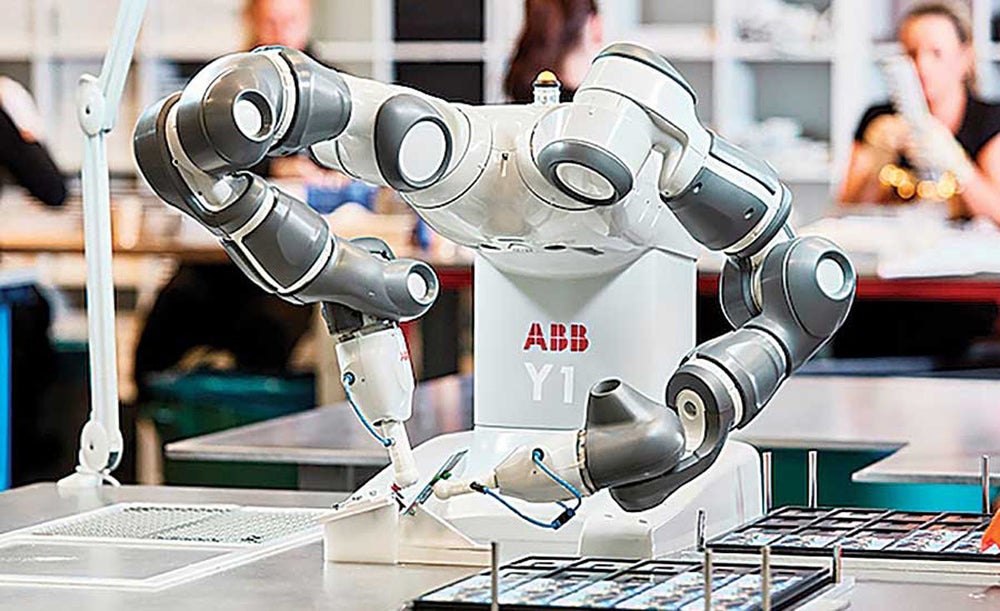
Pros and cons
| Pros | Cons |
|---|---|
| Numerous customizable solutions | Less accessible for smaller businesses without specialized training |
| Industry-leading cobots | Scalability focused on large enterprises |
| AI integration for predictive maintenance | Lacks pricing transparency |
Pricing
- ABB does not publish pricing information on its website.
- Visit the ABB webshop to request a quote.
Features
- SCARA robots
- Paint robots
- Articulated robots
- Collaborative robots
- Delta robots
- AMRs
Robotics companies are often employed in conjunction with AI vendors. Read our in-depth guide to the top AI companies to learn more about the organizations defining an industry.

Anduril
Best for defense and national security
- Founded: 2017
- Number of Employees: More than 3,500
- Annual Revenue: $1 billion
Anduril Industries is a U.S.-based defense technology company that develops autonomous systems, AI software, and automation-focused hardware to enhance situational awareness and decision-making, focusing on border security and defense operations. Anduril products include border surveillance systems, drone detection and tracking systems, and military-grade AI software.
Anduril created the Lattice software for command and control and Lattice for Mission Autonomy for automating unmanned systems and coordinating sensors, drones, and ground vehicles in real time. The Ghost UAS (Unmanned Aerial System) and the ALTIUS (Agile-Launched, Tactically-Integrated Unmanned System) are among its offerings. These technologies help protect and defend national borders, provide real-time situational awareness, and assist military and security personnel in their operations.
Why we picked Anduril
Anduril is one of the best robotics companies on our list because of its dedicated focus on defense technologies. While not applicable to every use case, these are paramount to sectors or organizations with demanding security and protection requirements. Anduril’s systems effectively address the stringent needs of defense operations by automating important defense tasks and seamlessly integrating autonomous systems into complex security environments.
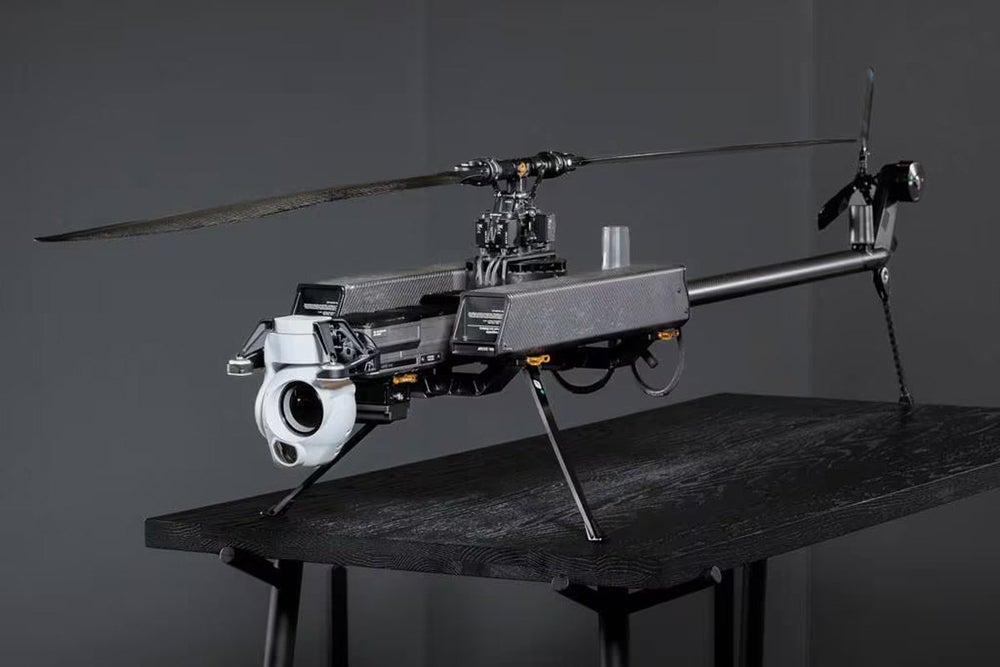
Pros and cons
| Pros | Cons |
|---|---|
| Highly specialized for border security and surveillance | Limited use cases outside of defense |
| Real-time decision-making capabilities | Difficult to deploy and manage |
| Military-grade AI software | Lacks transparent pricing |
Pricing
- Anduril does not publish any pricing information on its website.
- Get in touch with the Anduril team for a custom quote.
Features
- Drone detection and tracking
- Counter UAS
- Dive-LD autonomous underwater vehicle
- Fury autonomous air vehicle (AAV)
- Maritime counter intrusion
- Sentry towers for border security

Boston Dynamics
Best for automated industrial inspection
- Founded: 1992
- Number of Employees: 491
- Annual Revenue: $131.7 million
Boston Dynamics is a robotics company best known for its advanced, highly mobile robots for industrial and commercial applications. Focusing on legged robots, this company draws inspiration from natural movements to build machines that can navigate complex terrains, perform complex tasks, and adapt to their surroundings with sentient-like responsiveness.
Boston Dynamics’ flagship product, Spot, is a versatile quadruped robot that performs inspections and collects data for construction, energy, and public safety industries. Stretch, its robot for warehouse automation, focuses on fast box handling. Boston Dynamics’ robots are renowned for their mobility and dexterity.
Why we picked Boston Dynamics
Boston Dynamics made it to our list of top robotics companies thanks to its significant contributions to the robotics industry. Even if Boston Dynamics isn’t one of the biggest robotics companies out there, it’s certainly among the most well-known because of its pioneering work on dynamic mobility and balance. Its emphasis on practical, real-world applications, combined with mechanical innovation, makes it a leading robotics company today.
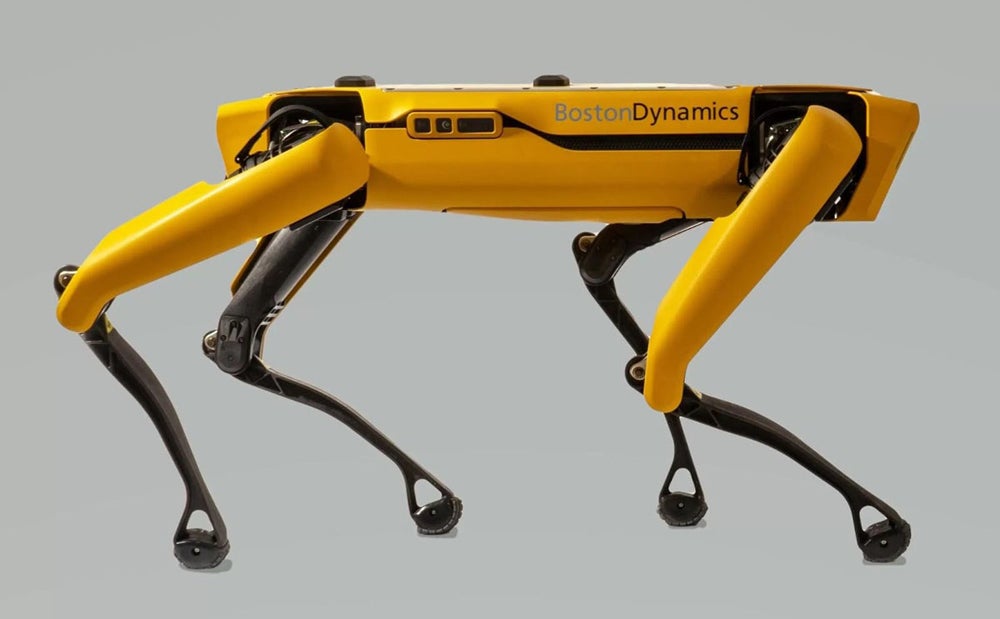
Pros and cons
| Pros | Cons |
|---|---|
| Real-time perception and decision-making capabilities | Limited commercial availability for general use |
| Sophisticated and versatile robots for various industries | Requires specialized training for operation |
| Advanced mobility and dexterity | Lacks transparent pricing |
Pricing
- Boston Dynamics does not publish pricing information on its website.
- Contact the Boston Dynamics’ sales team to learn more.
Features
- Manipulation and object recognition
- Advanced mobility capability
- Sophisticated humanoid and quadrupedal robots
- Spot has 360° perception and athletic intelligence
- Stretch can detect and retrieve boxes that shift and fall while unloading

FANUC
Best for industrial automation
- Founded: 1956
- Number of Employees: 9,900
- Annual Revenue: $5.5 billion
FANUC is one of the leading robot manufacturers with a 40-year history of developing industrial automation technologies. Its diverse portfolio includes more than 200 robot models designed for intricate manufacturing environments, ranging from lightweight collaborative robots to heavy-duty industrial systems that can handle payloads of up to 2,300 kilograms with precision and reliability.
FANUC’s robotic solutions serve over 20 sectors, including automotive, aerospace, electronics, and pharmaceutical manufacturing. Equipped with advanced vision systems and force-sensing technologies, FANUC robots can handle welding, material handling, assembly, and packaging. This robotics company helps manufacturers increase operational efficiency and expand technical capabilities.
Why we picked FANUC
We picked FANUC as a top robotics company due to its well-established expertise in industrial automation, broad selection of robot models, and reputation for providing reliable and effective automation technologies to businesses across numerous sectors. In addition, FANUC’s robots feature integrated safety systems and flexible configurations, and the company provides reliable support and maintenance services.
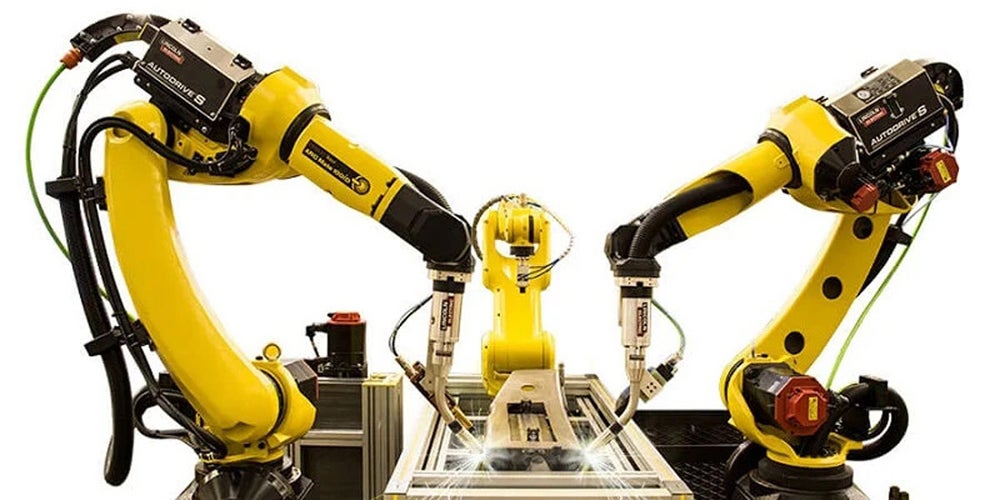
Pros and cons
| Pros | Cons |
|---|---|
| Extensive product range | Requires specialized knowledge for setup and operation |
| Lifetime maintenance | The programming process can lead to downtime |
| Fast cycle times and high repeatability | Lacks pricing transparency |
Pricing
- FANUC does not publish pricing information on its website.
- Request a quote for more details.
Features
- Articulated robots
- Delta robots
- 3D vision sensor and force sensor
- Advanced control systems
- Integrated safety systems
- Flexible configuration
Our reviews of the top generative AI apps will help you find the right tools for many automation and robotics use cases.

Piaggio Fast Forward
Best for mobile carrying and following robots
- Founded: 2015
- Number of Employees: 73
- Annual Revenue: $19.8 million
Piaggio Fast Forward (PFF), a subsidiary of the Piaggio Group, focuses on building mobility solutions for urban environments. The robotics company’s signature product, gita, is a cargo robot that follows users and transports up to 40 pounds of personal items, using cutting-edge sensors and cameras to move safely through complex spaces.
PFF offers two gita models with distinct capabilities. gitamini carries 20 pounds with a six-hour runtime, while gitaplus handles 40 pounds and travels approximately 21 miles. The company recently introduced Kilo, a four-wheeled industrial cargo robot, broadening its strategy to include both personal and commercial mobility.
Why we picked Piaggio fast forward
We selected PFF for its mobile carrying robots, which make tasks like transporting groceries and luggage easier and hands-free. With the continued development of robotic products, this company is cementing its position in the growing market for mobile robotic assistants. Unlike many competitors, PFF offers transparent pricing, making it a more straightforward option.
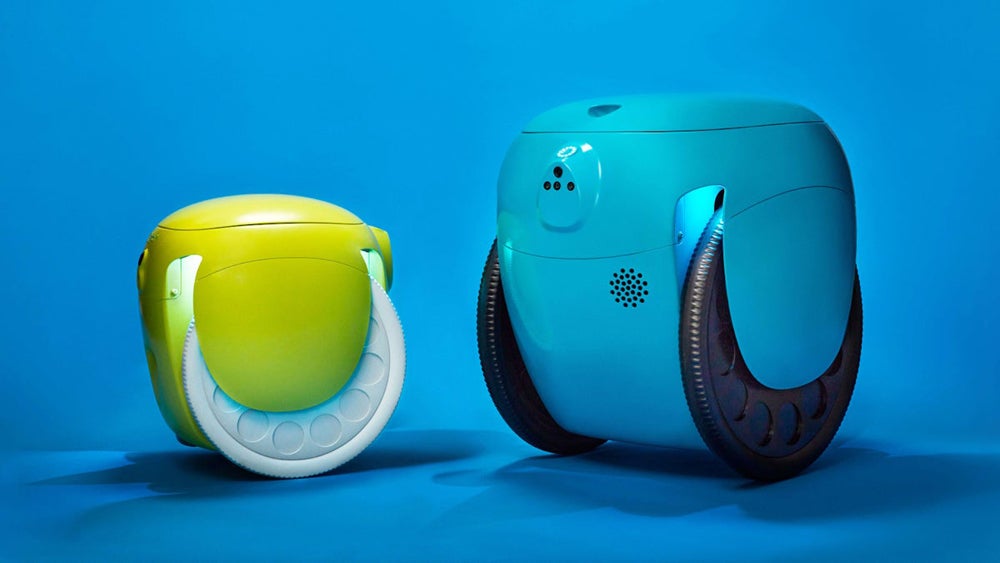
Pros and cons
| Pros | Cons |
|---|---|
| Transparent pricing with flexible options | Limited functional versatility |
| Consumer friendly | Limited range and battery life |
| Convenience | Not suited for rugged or complex terrain |
Pricing
- gitamini: $2,475 or $86 per month
- gitaplus: $3,475 or $121 per month
- kilo: Contact PFF for details
Features
- Suitable for grocery shopping, luggage, or moving items
- Kilo handles heavier-duty cargo
- Autonomous navigation
- Hands-free operation

Vecna Robotics
Best for material handling automation
- Founded: 2018
- Number of Employees: More than 130
- Annual Revenue: $23.2 million
Vecna Robotics is a leading robotics company that provides automated material handling solutions, primarily optimizing workflows for the warehousing, manufacturing, and e-commerce industries. Its autonomous robots have advanced sensors that enable them to navigate, pick, and transport items. They can execute lifting and placement, pallet loading, cross-docking, sorting, packaging, and replenishing.
Vecna’s products integrate with its end-to-end orchestration software, Pivotal. This platform coordinates tasks between machines and humans, ensuring a smooth workflow. It uses real-time data to improve routing and resource allocation and balance demand with congestion. Vecna’s solutions are tailored to address labor shortages and rising operational costs, providing scalable options for high-demand sectors.
Why we picked Vecna
We selected Vecna Robotics for its expertise in material handling and goods transport in dynamic, high-demand environments. Vecna’s robots are built to work independently, making them extremely useful in material logistics and storage, which are often labor-intensive and time-consuming– allowing humans to focus on higher-level tasks. The company’s approach to streamlining logistics and minimizing human involvement makes it a practical choice for businesses looking to boost operational efficiency in warehouses and similar industrial settings.
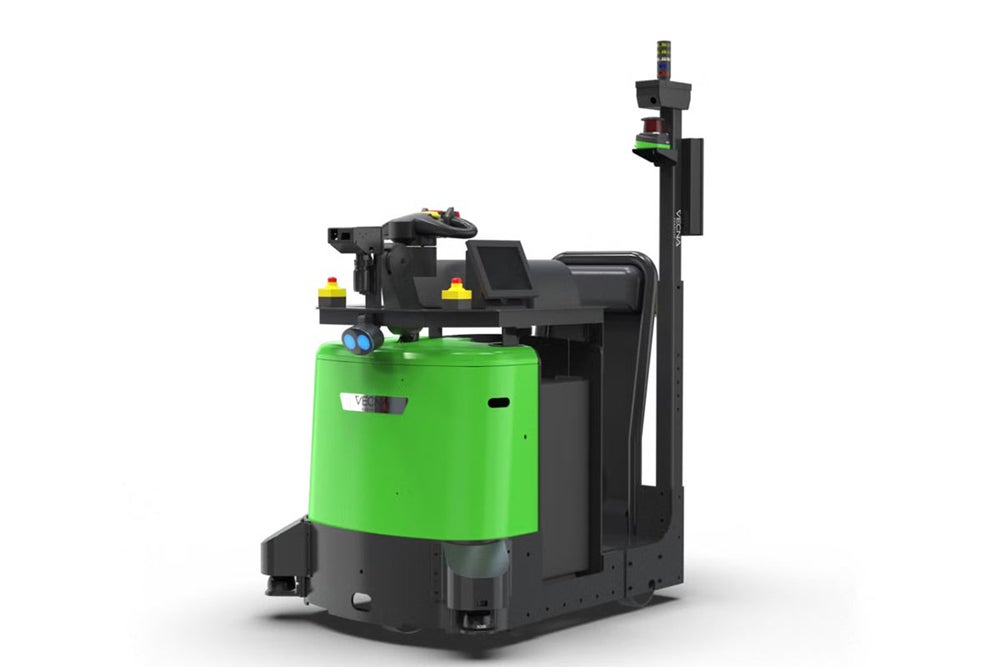
Pros and cons
| Pros | Cons |
|---|---|
| Effective work-in-progress tracking and management | Technical expertise needed for system operation |
| Helps address labor shortages in warehouses | Best suited for larger-scale operations |
| Reduces long-term labor costs | Lacks transparent pricing |
Pricing
- Vecna doesn’t publish pricing information on its website.
- Contact the Vecna team for more details.
Features
- Fleet management capabilities
- Case picking automation
- Advanced vision and perception systems
- Autonomous navigation
- Pivotal AI orchestration software
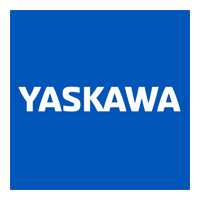
Yaskawa Electric
Best for automating production processes
- Founded: 1915 (Yaskawa), 1989 (Motoman Robotics)
- Number of Employees: 15,000
- Annual Revenue: $4 billion
Yaksawa is a leading robotics company specializing in industrial automation technologies through its Motoman robotics division. It offers robotic systems for vital manufacturing tasks, including arc welding, spot welding, material handling, and painting. The company provides a comprehensive lineup of collaborative robots, SCARA robots, controllers, software, and vision systems to streamline industrial automation processes.
While typically used in automobile factories, Yaskawa’s robots serve multiple sectors, including electric equipment, semiconductor manufacturing, biomedical, food, and logistics. With strong market presence in Japan, North America, and Europe, the company continues to expand its technological reach in global manufacturing environments.
Why we picked Yaskawa
Yaskawa ranks among the top robotics companies thanks to its global presence and proven track record. With over 600,000 robots worldwide, it delivers solutions for various industries, backed by a century of expertise. Yaskawa’s product selection makes it a solid option for those seeking versatile and reliable robotics technology.
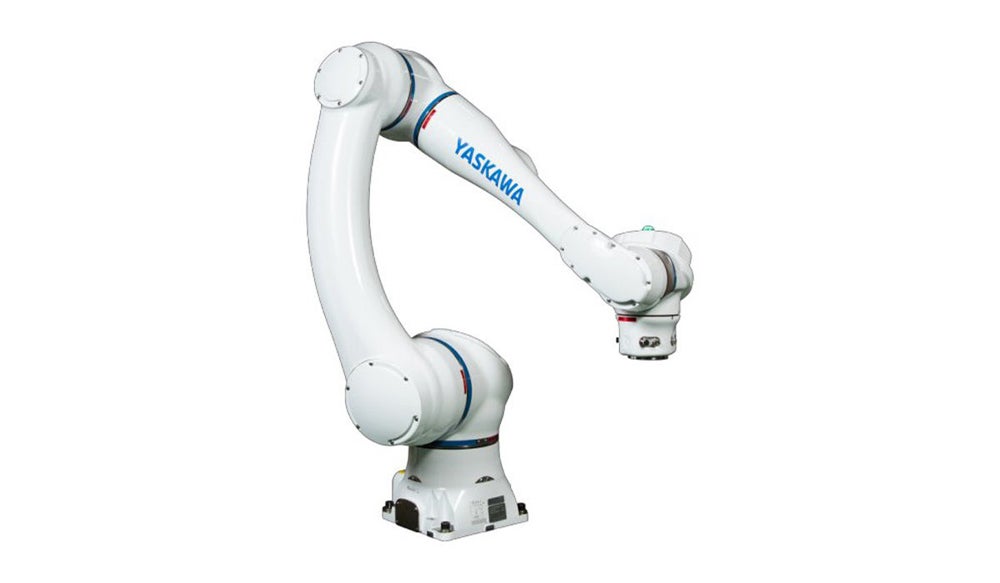
Pros and cons
| Pros | Cons |
|---|---|
| In-person and online training via Yaskawa Academy | Requires expert setup for large-scale implementations |
| Versatile robot models | Lower payload capacity than comparable competitor products |
| 24/7 emergency support | Lacks pricing transparency |
Pricing
- Yaskawa doesn’t publish pricing information on its website.
- Get in touch with Yaksawa’s regional offices to find out more.
Features
- Human-collaborative robots
- Advanced vision systems
- Material tending and removal capabilities
- Palletizing robots
- Sigma series servo motors
- Turnkey solutions
How to choose the best robotics companies for your business
The key to choosing the best robotics company for your business is knowing which area of your organization you want to automate. The best way to find out is to examine your current operational processes and determine where you need to adjust or improve efficiency. Then, research to pinpoint exactly what types of robotics solutions align with your organization’s needs.
This could include tasks like manufacturing, logistics, material handling, or customer service, depending on your business. You’ll also want to evaluate the scalability, compatibility, and support offered by potential robotics providers to ensure they can be integrated smoothly into your existing setup. Remember that the sector you operate in is critical to determining the best robotics company, and solutions for your business.
FAQs
Yes, you can invest in robotics through robotics stocks. Many robotics companies are publicly traded, so investors can buy shares. These stocks offer a way to gain exposure to the growth of robotics technologies within various fields, such as industrial automation and consumer robotics.
Japan is currently ahead in robotics, particularly in industrial automation. It is home to major robotics companies, like FANUC and Yaskawa, which are frontrunners in robot manufacturing. Japan has also made substantial investments in robotics in the healthcare, service, and consumer market sectors.
The next step for the robotics industry involves integrating artificial intelligence (AI), machine learning (ML), and IoT technologies into robots. AI and ML will refine the robots’ decision-making and performance. IoT, on the other hand, will enable them to communicate with other devices, creating smarter, more connected systems.
Bottom line: Top robotics companies greatly enhance business productivity
Investing in robotics companies can significantly enhance business productivity while reducing costs and risks associated with manual labor. Though the initial setup costs may be high, especially for small businesses, the return on investment over time typically justifies the expenditure. The best robotics companies offer a wide array of robots with varying payload capacities, ranges, and speed, tailored to meet different industrial needs. Consider your specific requirements before partnering with a robotics company to ensure the technology aligns with your long-term goals.
Read our top generative AI companies article to explore the biggest names that support automation and robotics use cases.